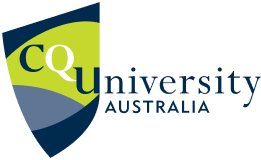| Rank threshold | ATAR: 74 SR: 74 |
| Duration | 5 years full-time, 10 years part-time |
| Location | Online |
| Next start term | Term 2, 2024 |
| Study mode | Online |
| Course code | CL52 |
| First-year fee | $16,320 (Indicative) (CSP) |

Overview
Be on the cutting edge of both the legal and property professions and the careers of the near future with the Bachelor of Laws and Bachelor of Property dual degree. Designed to enable you to gain entry into the legal profession, and to become a Certified Practicing Valuer and Certified Property Practitioner, you will enjoy the flexibility of studying online combined with optional work integrated learning opportunities to enhance your learning experience.
This course will allow you to seek admission as an Australian Legal Practitioner, after completing the required professional training (Practical Legal Training Course), and is accredited by the Legal Practitioners Admissions Board of Queensland and the Australian Property Institute.
The Bachelor of Laws and Bachelor of Property is a multidisciplinary qualification designed to enable you to gain entry into the legal profession and to become a Certified Practicing Valuer and Certified Property Practitioner.
During your legal studies, you will learn about legal procedures and key legislation, develop skills necessary to identify, analyse and evaluate facts in relation to legal frameworks. The core areas of the law degree match those required for admission to the legal profession including statutory interpretation, criminal law and procedure, contracts, torts, constitutional law, equity, administrative law, property, company, evidence, professional responsibility and civil procedure.
You will also develop your property skills within a broad business context in the Bachelor of Property. The course is accredited by the Australian Property Institute as providing the educational requirements necessary to practise as a professional property valuer, property manager, property economist and other specialised fields within the property industry.
You will benefit from the flexibility to study online to allow you to balance your study, work, family and other commitments. With flexibility in mind, you have the option to undertake experiential learning opportunities including moot simulations, developing legal apps, pro bono community service opportunities and the option to seek out work placements.
Choosing to study this double degree will put you on the cutting edge of both the legal and property professions and the jobs of the near future. Discover more about studying law at CQUni and the range of support available to students.
Study experience
- Authentic Learning Experiences
- Experienced Teaching Team
- Flexible Online Study
- Industry Accredited
- Social Innovation
- Work-integrated learning
Career Opportunities
The Bachelor of Laws and Bachelor of Property prepares graduates for a career as a legal professional. Aside from the traditional roles as a solicitor, barrister or in-house counsel, a law degree is useful for careers in academia, business, the public service and politics.
The Bachelor of Property prepares you to pursue a number of different careers in the property industry including roles as consultant, land economist, market researcher portfolio manager, property analyst, property developer, property financier, property manager, property sales representative, and property valuer.
Structure & Availability
Course structure
You are required to complete 24 law units, of which four units will be selected from one of the following laws areas; liberal law, commercial law, or legal practice. You will also complete 16 property units.
The course is designed to give a strong grounding in both the disciplines of law and property. Assessment is overseen through university governance processes, along with the discipline's pastoral responsibility. The course adheres to CQUniversity's academic standards and continual renewal and improvement framework.
Unit information
For information on the units, you could study as part of this course, visit the Handbook and select the "Course Structure" tab.
Credit transfer information
If you have already completed study relevant to the course you have enrolled in, you may be eligible for credit transfer.
Online Availability
| Intake | Locations |
|---|---|
| Term 1, 2023 | Available Online |
| Term 2, 2023 | Available Online |
| Term 3, 2023 | Available Online |
| Term 1, 2024 | Available Online |
| Term 2, 2024 | Available Online |
| Term 3, 2024 | Available Online |
| Term 1, 2025 | Available Online |
| Term 2, 2025 | Available Online |
| Term 3, 2025 | Available Online |
Majors and minors are not applicable to this course.
This course has no residential schools.
Professional Practice - Legal Practitioners Admissions Board (Queensland)
Core
Legal Practitioners Admissions Board of Queensland
The degree is an approved academic qualification for admission to the legal profession. Graduates are also required to undertake a further period of practical legal training before being admitted as a legal practitioner.
Australian Property Institute
The degree is an approved academic qualification for admission to the property valuation and property practitioner professions.
Legal Practicum - LAWS12073
Students will be able to undertake at their option an overseas or domestic practicum placement or engagement with a complex work simulation.
Requirements
To be eligible
For your application to be considered, you must meet the following entry requirements.
Student and Course Profiles
View the student and course profiles for this course and learn about CQU's Undergraduate Profile for Term 1, 2023 via our Institute Profile.
During your study
While not needed to apply, you'll need to meet the following requirements throughout your studies.
Fees & Scholarships
Indicative First-Year Fee
The Indicative First-Year Fee is the approximate cost of enrolling in this course for one full-time academic year (eight units over two terms) for a Commonwealth Supported Place (CSP). Your actual fees may vary, depending on the units you select to study and your study load. Fees are reviewed each year and are subject to change. Understanding your fees.
Commonwealth Supported Places
This course has Commonwealth Supported Places (CSPs) available, and as a domestic student, you'll be offered a CSP, provided you meet CSP eligibility requirements. CSPs are subsidised by the Australian Government, meaning you are only required to pay the student contribution rather than full tuition fees.
HECS-HELP Loan
You may be eligible for a HECS-HELP government loan if you are offered a CSP. HECS-HELP is an Australian Government loan scheme that assists you in paying your student contributions. Provided you meet the HECS-HELP eligibility criteria, you may use HECS-HELP to defer part or all of your student contribution fees.
Part of your course costs will include Student Services and Amenities Fees (SSAF). SSAF is charged in addition to your student contribution or tuition fees and is used to help enhance your study experience. There may also be other costs as part of your studies, such as textbooks, technology expenses, travel expenses, professional certifications, uniforms, or vaccinations. Explore other study costs.
We believe a quality education can be for everyone – regardless of background, location, or life circumstances. That's why we offer a variety of scholarships and bursaries that can give you a helping hand with a range of expenses and enhance your employability.
How to apply
How to apply
Check what you need to do to apply to study this course.
Your application options
Follow these steps
Extra admission information
Prior to applying, take a look at important application dates and learn about our admission considerations, such as information for domestic students with overseas qualifications, indigenous support, and elite athlete, coach and performer support. You should also check out the adjustment schemes that might be available to you and how to access them. You can also explore our offer information to learn more about what happens after you've submitted an application and how to respond to an offer to study with CQU.
Start your application
When applying through a tertiary admissions centre (TAC) you can use the relevant TAC code below to search for a course or add it to your application preferences.


